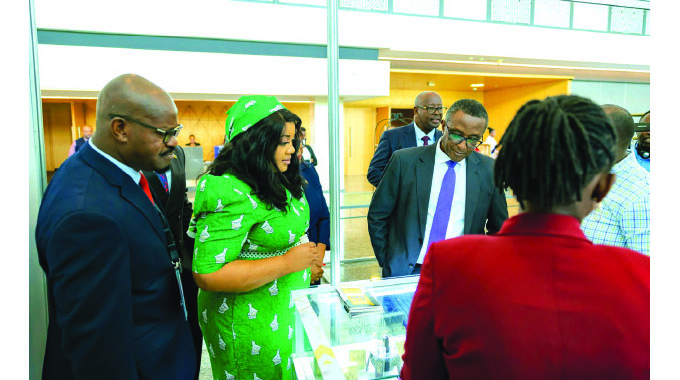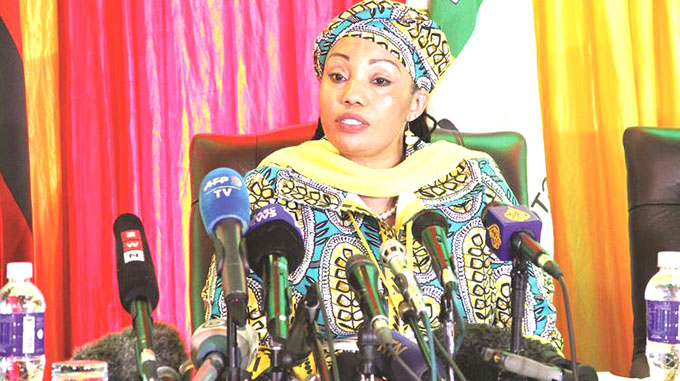Editorial Comment: Increasing access to education commendable

While every child in Zimbabwe has the right to a full primary education and at least four years of secondary education, there are many children who have to walk long distances each day to exercise this right, hence the need for a denser network of schools.
As temporary measures, in some areas satellite classrooms were set up to help get education closer to the children, especially in resettlement zones after land reform where schools had been on the thin side, and in some of the less dense older farming areas. In some cases the premises were not ideal, although at least they had a roof, and proper classrooms have been built by communities and partners.
As a result around 300 schools are now ready for formal registration, having met the minimum standards for classrooms and other facilities and move into the list of permanent schools. Parents and communities will still be encouraged to support their schools, but at least their children will now be at a “proper” school, rather than in temporary premises under the supervision of the nearest “proper” school.
Zimbabwe follows the international standard that no child should have to walk more than 5km to school each day.
Even that is a fairly long hike, although if the child furthest from the school is that far away everyone else is closer and some may be living almost next door. So we should not think that the 5km limit is what every child has to walk, just a small minority.
That 5km limit means that at worst schools should be no more than 10km apart, and that is by road, not as the crow flies but as the child walks. In turn that requires a network of schools outside the national parks no more than 10km apart, and preferably closer.
In urban areas and some of the most intensively farmed rural areas, the schools can be closer. But there are plenty of farming areas, especially in the south and west of the country, where farmers have to live further apart, usually because they have to specialise in livestock rather than crops, and distances between schools are greater.
Sensibly, the Ministry of Primary and Secondary Education has largely insisted on every primary school being just the minimum size, these days if you are building one from scratch of nine classrooms, one for each year, plus the ablutions, plus a modest administrative office and a storeroom and, as time marches and especially in rural areas, some accommodation for teachers.
It is better to have a very dense net of these sized primary schools, rather than larger schools further apart.
Secondary schools may have to be a bit bigger, to accommodate all the required subject teachers, but teenagers can walk slightly longer distances.
But even here it would be better to have a dense network of schools on the smaller side, certainly no more than two classes in each form.
There are other good educational grounds for a lot of smaller schools rather than one large school, and that in some high density suburbs even results in two schools next door to each other and occasionally a row of schools running through the centre of the suburb. It is far easier for a child, and especially a small child, to integrate into a school if they are not swamped by many hundred others, and it is easier to see every child as an individual, rather than part of an amorphous crowd, which is important for teachers.
Parents in Zimbabwe are usually heavily involved in education of their children.
We regularly report on new schools being opened, built through a combination of parental contributions, usually labour and building materials, along with the money from the rural district council and other interested bodies for cement, roofing, the steel and the like, with devolution funds being a serious new input.
This self-help and high-level community involvement impresses others and as Minister Torerayi Moyo told Parliament recently, when he announced the new schools ready for registration, there is a continual flow of help to expand schools networks and school facilities. Many do like to back enthusiasm and community success, with the latest being the OPEC Fund that is looking at 50 new schools, 10 of them boarding schools. At least they know their support is worthwhile and highly appreciated.
We have noticed that a lot of this involvement of parents, communities and councils to expand the school network is across rural areas, with far less enthusiasm in urban areas, despite the growing urban population and new suburbs without schools.
In some cases parents pack their children into existing schools nearby, in other cases they use the expanding private school system which seems alright, but not everyone can afford the fees.
But it does appear that the public school system could be expanded, and this would involve the local council, the parents and the ministry. Some of the new suburbs were sold off by land barons, so the schools are part of the general services that are missing, but are among the first that could be added, especially as efforts have been made to preserve the land set aside for schools in the planning.
It would seem sensible for concerned councillors, parents and others to start initiating the process to build the new schools to the required standards. Already some urban children are having to travel well over 5km a day to get to school, so the over-wide mesh of schools is not just a rural phenomenon. It does involve everyone. The differences arise from those who are fixing it and those who would rather someone else did the work, which is not the way to get something done.











Comments